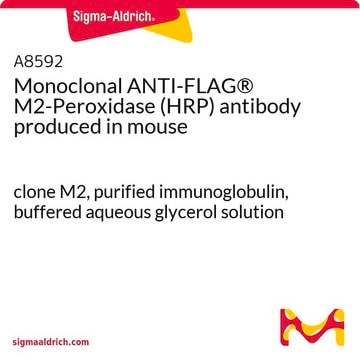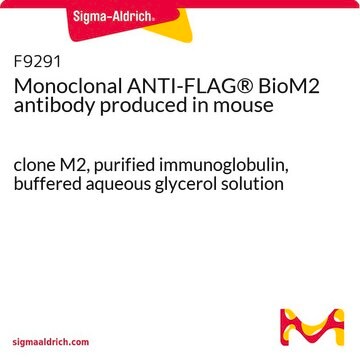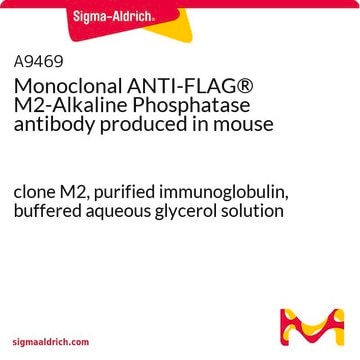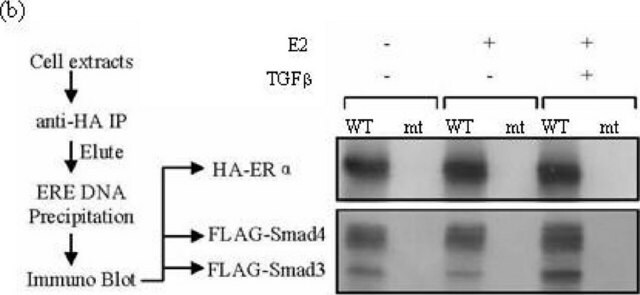F1804
Monoclonal ANTI-FLAG® M2 antibody produced in mouse
1 mg/mL, clone M2, affinity isolated antibody, buffered aqueous solution (50% glycerol, 10 mM sodium phosphate, and 150 mM NaCl, pH 7.4)
Synonym(s):
flag antibody, Anti-ddddk, Anti-dykddddk
About This Item
Recommended Products
biological source
mouse
Quality Level
conjugate
unconjugated
antibody form
affinity isolated antibody
antibody product type
primary antibodies
clone
M2, monoclonal
form
buffered aqueous solution (50% glycerol, 10 mM sodium phosphate, and 150 mM NaCl, pH 7.4)
purified by
affinity chromatography (affinity tag purification)
species reactivity
all
concentration
1 mg/mL
isotype
IgG1
immunogen sequence
DYKDDDDK
shipped in
wet ice
storage temp.
−20°C
Looking for similar products? Visit Product Comparison Guide
General description
Method of purification - Affinity tag purification
Specificity
Immunogen
Application
Western Blotting and EIA
Learn more product details in our FLAG® application portal.
Physical form
Preparation Note
Legal Information
Not finding the right product?
Try our Product Selector Tool.
also commonly purchased with this product
Storage Class Code
12 - Non Combustible Liquids
WGK
WGK 2
Flash Point(F)
Not applicable
Flash Point(C)
Not applicable
Choose from one of the most recent versions:
Certificates of Analysis (COA)
Don't see the Right Version?
If you require a particular version, you can look up a specific certificate by the Lot or Batch number.
Already Own This Product?
Find documentation for the products that you have recently purchased in the Document Library.
Customers Also Viewed
Articles
Immunoblotting (Western blot transfer) is a common technique in modern proteomics research.
Related Content
Protein and nucleic acid interaction reagents and resources for investing protein-RNA, protein-DNA, and protein-protein interactions and associated applications.
Our team of scientists has experience in all areas of research including Life Science, Material Science, Chemical Synthesis, Chromatography, Analytical and many others.
Contact Technical Service














